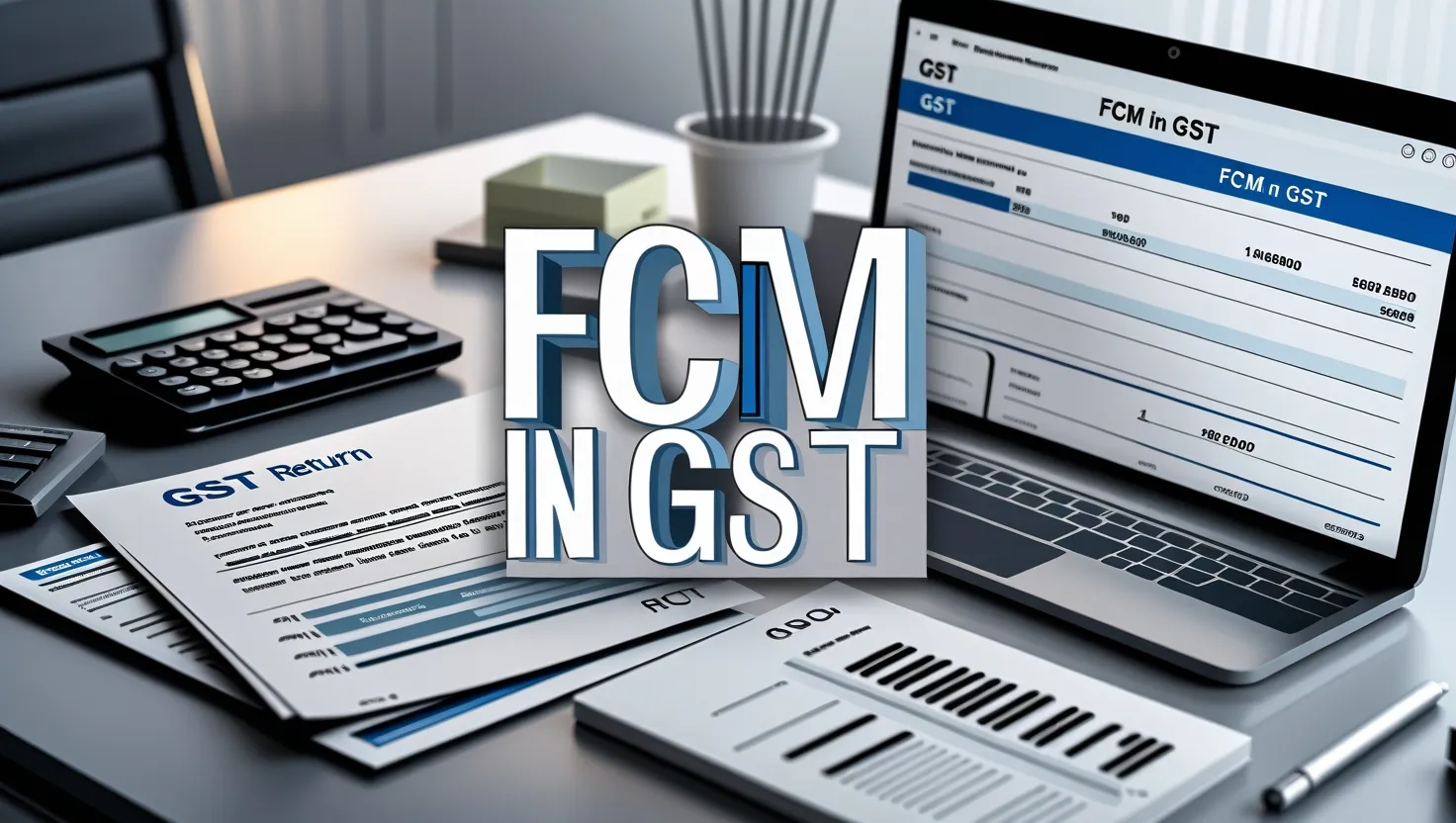
-
Understanding taxes can be tricky, especially for small business owners. One important part of India’s Goods and Services Tax (GST) system is the Forward Charge Mechanism (FCM). This system ensures that the supplier is responsible for paying GST directly to the government.
This is different from the Reverse Charge Mechanism (RCM). In RCM, the person receiving the goods or services pays the GST instead. Knowing how FCM works helps small businesses stay compliant with tax laws while keeping things simple.
Why FCM Matters for Small Businesses #
For small businesses, understanding FCM can help with:
- Better financial planning – Knowing your tax responsibilities helps you plan business expenses.
- Easier compliance – Paying GST on time helps you avoid fines and legal trouble.
- Clear tax duties – Since suppliers pay GST under FCM, it is easier to track payments and plan.
FCM makes tax compliance easier. Small businesses benefit by staying organized and avoiding legal issues.
How FCM Improves Business Operations #
FCM keeps tax payments simple and clear. This helps businesses work smoothly without getting stuck in tax-related confusion.
Here’s how FCM makes businesses more efficient:
- Avoids confusion – Suppliers always know they must collect and pay GST.
- Prevents disputes – No need to argue over who should pay taxes.
- Saves time – Businesses can focus on growth instead of tax issues.
Actionable Tip:
Using accounting software can ensure that all invoices reflect the correct GST amount, making compliance easier.
Key Features of FCM #
- Supplier Pays the Tax: If you are the supplier, you must collect and pay GST to the government.
- Common in B2B Transactions: FCM is often used in business-to-business (B2B) deals. In these deals, one business sells goods or services to another.
- Correct Invoicing is Essential: Invoices must clearly show the proper GST rate and tax amount. Any mistake can lead to confusion and compliance issues.
- Tax Responsibility Stays with the Supplier: Once the supplier collects the tax, the buyer is still responsible for it.
- Simple Input Tax Credit (ITC) Process: Buyers can claim Input Tax Credit (ITC) using FCM invoices. This makes tax deductions easier.
Top Benefits of FCM for Small Businesses #
- Makes Compliance Easier – FCM simplifies tax payments by ensuring only the supplier handles GST obligations.
- Reduces the Risk of Fines – Clear tax rules mean fewer mistakes and fewer penalties.
- Helps Manage Cash Flow – Knowing how much GST you owe helps avoid cash shortages.
- Increases Financial Transparency – Accurate tax payments make record-keeping and audits easier.
- Gives Business Owners More Control – By handling taxes directly, businesses stay organized and avoid disputes.
How to Implement FCM in Your Business #
- Check if FCM Applies to Your Business – Not all transactions fall under FCM. Check GST guidelines to see if your business needs to follow this rule.
- Issue Correct Invoices – Always include the correct GST rate, total tax amount, and supplier details on invoices.
- Pay GST on Time – File GST returns and make tax payments before the deadline to avoid late fees.
- Keep Records Organized – Maintain detailed invoices, tax receipts, and financial records for smooth audits.
- Claim Your Input Tax Credit (ITC) – Ensure your ITC claims are backed by accurate documentation to save on GST costs.
- Review Transactions Regularly – GST rules can change. Check your compliance status frequently to avoid issues.
- Use Accounting Software – Tools like the Vyapar App automate tax calculations, making your job easier.
Best Practices for Handling FCM #
- Train Your Staff – Make sure your team understands GST rules.
- Keep Detailed Tax Records – Store all tax invoices, payment records, and business reports safely.
- Use Software for Tax Calculations – This reduces human error and ensures accuracy.
- Consult a Tax Expert – A professional can help you avoid mistakes in tax filings.
- Conduct Internal Audits – Regular checks ensure that your business stays compliant.
Real-Life Examples #
Retail Store Owners
Retail Store Owners started using billing software to track GST payments, helping to avoid late fees and tax disputes.
Manufacturing Business
Manufacturing Business used tax software to manage GST payments, ensuring accurate ITC claims and avoiding penalties.
How Vyapar App Helps #
- GST-Compliant Invoicing – Generates professional invoices with auto GST calculations.
- Automated GST Reports – Provides detailed tax reports for quick filing and audits.
- Seamless Expense Tracking – Records expenses with GST input to optimize tax credits.
- E-Way Bill Generation – Creates and manages e-way bills for hassle-free goods transport.
- Multi-Tax Support – Handles CGST, SGST, IGST, and Cess calculations accurately.
FAQ’s: #
What is FCM in GST?
FCM means the supplier is responsible for collecting and paying GST to the government.
Who needs to follow FCM?
Most B2B businesses where the supplier sells goods or services must follow FCM.
How do I calculate GST under FCM?
Use the correct GST rate based on your goods or services. Tax software can help with this.
Can I claim ITC under FCM?
Yes! Businesses can claim ITC if they have a valid invoice and follow tax rules.
Conclusion #
Understanding the Forward Charge Mechanism (FCM) is essential for small businesses. It ensures smooth tax compliance, helps avoid legal trouble, and makes financial planning easier.
Use Vyapar App to handle billing, stock & payments all in one place.
Make bills, track stock, and handle payments in one place.
